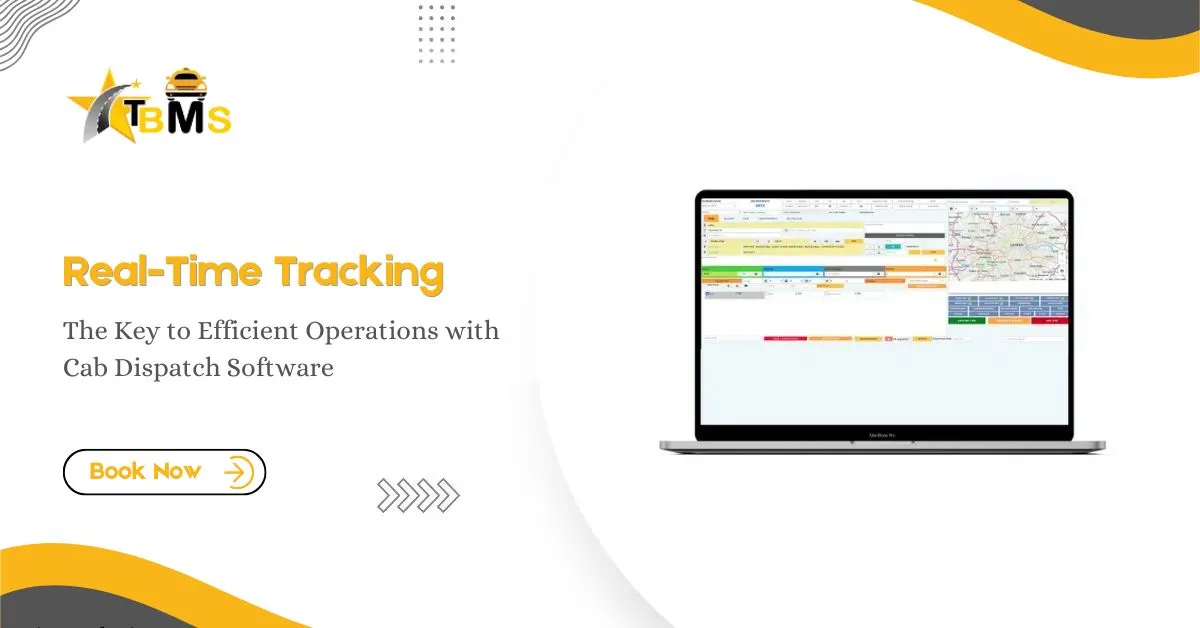

Real-Time Tracking: The Key to Efficient Operations with Cab Dispatch Software
Introduction to Real-Time Tracking and Cab Dispatch Software
This cab dispatch software revolutionizes how companies understand and manage fleets, streamline operations, and meet customer needs. As technology evolves, businesses rely on tools to deliver precise, real-time information about their vehicles and optimize dispatching. Understanding real-time tracking and how cab dispatch software works helps unlock the full potential of these tools.
What Is Real-Time Tracking?
Real-time tracking uses GPS technology and other data sources to provide live monitoring of vehicles or assets. This allows businesses to respond to changes immediately, eliminate inefficiencies, and improve customer service through accurate updates on vehicle movement and status.
Overview of Cab Dispatch Software
Cab dispatch software automates the process of allocating vehicles to customers. It leverages real-time tracking data to connect available drivers with passengers and optimize routes, reducing delays. Algorithm-based dispatching and real-time monitoring ensure timely, reliable services.
The Role of Real-Time Tracking in Fleet Management
Real-time tracking is a key strategy for fleet management in transport and logistics businesses. It improves operational efficiency and enables companies to stay competitive.
Why Businesses Need Real-Time Tracking for Efficiency
Real-time tracking allows fleet managers to minimize downtime and improve service quality. By providing a clear picture of vehicle movements, businesses can make proactive decisions, respond quickly to traffic changes, and handle emergency situations to cut down operational delays.
How Real-Time Tracking Impacts Cab Dispatch Operations
Integrating real-time tracking into cab dispatch operations gives dispatchers a faster and more accurate way of matching drivers with customers.
Actual Location Information for Efficient Dispatch
Accurate GPS information helps dispatchers locate drivers relative to customer locations, enabling them to assign the nearest available vehicle, reducing passenger wait times and optimizing fleet utilization.
Benefits of Cab Dispatch Software with Real-Time Tracking
Real-time tracking integrated with cab dispatch software offers many benefits, significantly enhancing the profitability of transportation businesses.
Increased Customer Satisfaction
Real-time tracking allows businesses to provide accurate ETAs and real-time updates to customers, improving overall customer satisfaction.
Reduced Waiting Time
Swift pairing of drivers with passengers minimizes wait times, especially during peak hours or special events.
Real-Time Tracking Features of Advanced Cab Dispatch Systems
Modern cab dispatch systems come with advanced features that make real-time tracking essential for fleet management.
Global Positioning System Integration
GPS-based systems form the foundation of real-time tracking by providing precise location data.
Live Map Monitoring
Live maps allow real-time monitoring of all vehicles, ensuring optimal resource utilization and efficient rerouting during emergencies.
Saving Operational Expenses Using Real-Time Tracking
One often overlooked benefit of real-time tracking is its ability to reduce operational costs in fleet management.
Fuel Management
Tracking data helps identify inefficient driving habits, leading to reduced fuel costs and lower overall operating expenses.
Route Planning Optimization
Real-time data on road conditions and traffic patterns help optimize routes, saving fuel and ensuring timely deliveries.
How Real-Time Tracking Improves Driver Performance and Safety
Real-time tracking promotes safer driving practices and helps fleet managers monitor driver behavior.
Monitoring Driving Behaviors
Fleet managers can track driving habits in real-time and provide feedback or training to ensure safer driving practices.
Emergency Response Capabilities
In emergencies, such as breakdowns or accidents, real-time tracking provides instant location data, speeding up response times.
Combination with Other Systems for Enhanced Efficiency
Real-time tracking, when combined with other business systems, enhances overall operational efficiency.
Combining Real-Time Tracking with Billing Systems
Integrating real-time tracking data with billing systems reduces errors, ensures accurate invoicing, and facilitates dispute resolution.
Case Study of Success Stories
Real-life implementations show the benefits of real-time tracking in cab dispatch operations.
Company A: Dispatch Improvements
Real-time tracking helped Company A reduce dispatch times by 30%, significantly boosting customer satisfaction.
Company B: Cost Savings
By optimizing routes through real-time tracking, Company B reduced fuel costs by 15%.
Common Challenges in Implementing Real-Time Tracking and Solutions
While real-time tracking offers numerous benefits, some common challenges arise during implementation.
GPS Signal Strength
Weak GPS signals in certain areas can hinder tracking. Multi-technology tracking systems can mitigate this issue.
Data Inaccuracy Issues
Inaccurate or outdated tracking data can affect dispatch reliability. Regular system updates and maintenance help address these issues.
Future Trends of Real-Time Tracking and Cab Dispatch Software
The future of real-time cab dispatch looks promising as technology advances create new opportunities for the industry.
AI-Powered Cab Dispatch Systems
Artificial intelligence will play an increasing role in automating dispatch decisions, making real-time tracking more effective.
In-Built Autonomous Vehicle Integration
As autonomous vehicle technology matures, the cab dispatch industry will likely integrate these vehicles, leveraging real-time tracking for seamless operations.
Choosing the Right Cab Dispatch Software with Real-Time Tracking
Selecting the right software is critical to maximizing fleet management and dispatch operations.
Features to Look for
Key features to consider include GPS integration, live map monitoring, and AI-driven dispatching capabilities.
Assessment of Software Vendors
Evaluate vendors based on user reviews, customer support, and software reliability to find the solution that best suits your business needs.